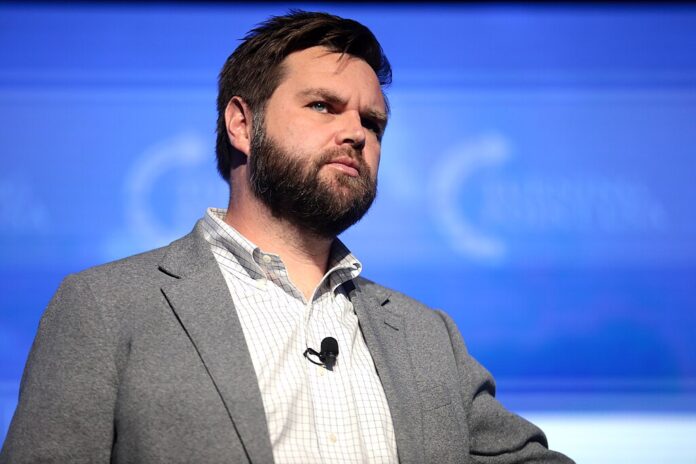Vice presidential nominee criticizes left for inflammatory language following threats against former president
In the wake of a second potential assassination attempt on former President Donald Trump, Vice Presidential nominee JD Vance has called for a reduction in what he describes as “ridiculous and inflammatory political rhetoric.” Speaking at the Faith and Freedom Coalition event in Atlanta, Vance condemned the left for its alleged role in escalating political violence, referencing the recent incident where a suspect was found with a rifle and surveillance equipment at Trump International Golf Course in Florida.
Vance, addressing the crowd, contrasted the situation with the absence of similar threats against Vice President Kamala Harris, asserting that “two people now have tried to kill Donald Trump in the last couple of months.” He warned that continued inflammatory language could lead to further violence, declaring that “somebody’s gonna get hurt by it, and it’s gonna destroy this country.”
Embed from Getty ImagesThe suspect in the Florida incident, identified as Ryan Wesley Routh, had camped out near the golf course with an AK-47 style rifle and other equipment. Though Routh did not fire any shots, his presence and intentions have sparked concerns about the state of political discourse. Federal authorities are investigating the case as a possible assassination attempt.
Vance’s remarks were seen as a broader critique of political rhetoric and a call for civility. He also referenced recent controversies, including his own past comments about Haitian immigrants in Springfield, Ohio, which led to a series of bomb threats in the area. Vance emphasized the need to reject censorship and protect free speech while criticizing media coverage that he argues is biased and sensationalized.
In contrast, Trump himself has accused President Joe Biden and Kamala Harris of contributing to the climate of violence through their rhetoric. Trump’s allies, including Dan Scavino, have echoed this sentiment, attributing the current climate of threats to Democratic figures.
Vance’s comments, which included a call for Americans to “reject censorship,” have sparked debate about the balance between free speech and responsible rhetoric. He contended that while dissent is a fundamental right, it must not be used to justify or incite violence. He criticized the media for allegedly focusing on threats rather than broader societal issues, including rising crime rates and leadership failures.
Analysis:
Political: JD Vance’s call for reduced political rhetoric comes at a critical juncture, with heightened tensions surrounding political figures. His remarks reflect a broader debate about the impact of political speech on public safety and the need for responsible communication. Vance’s focus on the left’s rhetoric might intensify partisan divides, influencing how voters perceive both the political climate and the candidates involved.
Social: Vance’s comments underscore the societal impact of inflammatory rhetoric and its potential to incite violence. His call for a reduction in harmful language highlights growing concerns about the effects of political discourse on public safety. The incident and subsequent reactions reflect broader anxieties about political violence and the responsibilities of public figures in shaping discourse.
Racial: While the specific incident does not directly involve racial elements, Vance’s previous comments about Haitian immigrants in Springfield reveal underlying tensions related to race and immigration. The interplay between rhetoric, race, and violence remains a significant concern, as inflammatory statements can exacerbate racial tensions and contribute to a climate of fear and division.
Gender: The focus on rhetoric and political violence affects both male and female public figures, though this incident primarily concerns a male politician. Vance’s critique of the left’s rhetoric and its potential impact on political violence underscores the need for all public figures to engage in responsible communication. Ensuring that discussions about violence are inclusive and considerate of all genders is essential for maintaining a respectful and safe political environment.
Economic: The economic implications of heightened political violence include increased security costs, potential impacts on investor confidence, and broader societal costs associated with unrest. Vance’s call for reducing inflammatory rhetoric aims to mitigate these economic impacts by promoting stability and reducing the need for extensive security measures. The economic effects of political violence can extend to various sectors, influencing public confidence and market conditions.
